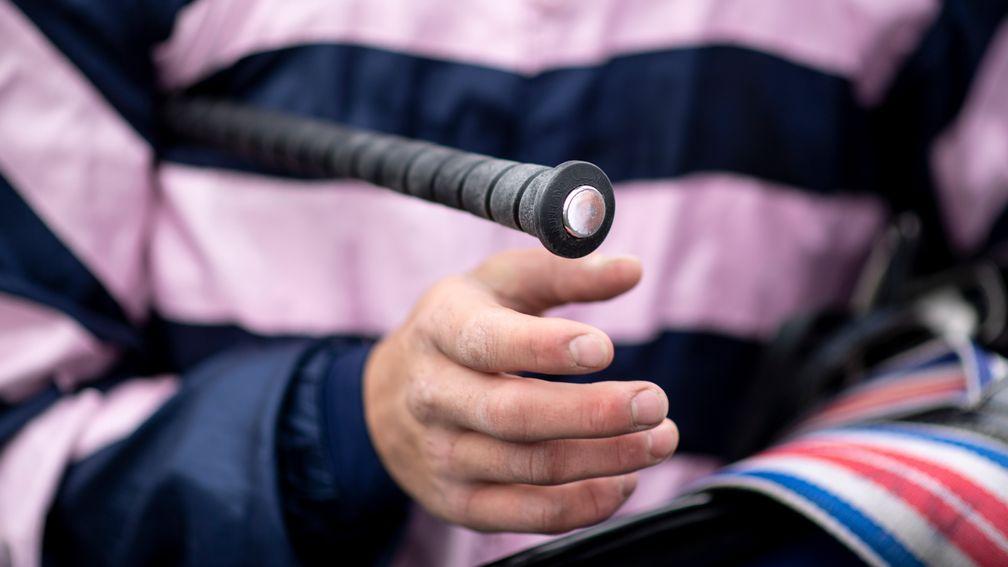Tougher penalties for breaches of whip rules recommended in welfare report

Stricter punishment for those breaching whip rules is the "clear, minimum recommendation" from the Horse Welfare Board with the present laws not acting as a deterrent for riders.
While whip offences had decreased by 40 per cent between 2010 and 2018 – a period containing the implementation of the new whip rules by the BHA in 2011 – the HWB pointed to the 19 per cent reduction in use of the whip above the permitted level during the same timeframe as "disappointingly low", adding there had been a year-on-year rise in whip breaches in 2017 and 2018 "despite the high public, political and media focus on the issue".
Amateur riders in Britain and Ireland were also shown to incur longer than average suspensions.
Following the HWB's strategy report released on Thursday, a consultation on the whip is set to be launched by the BHA, with the HWB recommending a decision on penalties by the end of October, a deadline the BHA aims to meet, and suggesting the opportunity should be used to gather opinions on a range of potential sanctions, including the option to restrict the use of the whip to safety only.
Alison Enticknap, BHA programme director and HWB member, said: "We think the consultation will flush out some potentially creative ideas and solutions, and we want people to have the opportunity to express those."
The BHA's chief regulatory officer Brant Dunshea will lead the consultation, and said: "This is a wide-ranging debate covering a number of different elements about how the whip is used. None of us wants the way we use the whip to be an issue of public or political concern so we’d like an outcome that is safe, fair, understood and accepted.
"We don't want to have to return to this issue, and would prefer to focus on the rest of the welfare programme and ensuring a prosperous and sustainable future for our sport."
The strategy report agreed with BHA research that there was a general hardening of public attitudes towards the whip and that there was a "negative public perception" that was potentially acting as a barrier to greater engagement in racing.
Read this
'Pivotal moment for racing' as Horse Welfare Board releases five-year strategy
Welfare report hailed as 'watershed moment for British racing'
A perceptive, progressive and proportional report racing can unite behind
The HWB recommendations in full
However, the HWB rejected the premise from many within racing that greater education of the public would change attitudes towards the whip, believing it is an unrealistic approach to take and that the public would take little interest in such a programme.
Instead, the HWB said there should be a push towards greater international collaboration, stronger positive engagement and leadership from racing on the whip with government and the public, and moves to build trust inside and outside the sport on the matter, in addition to the rule changes.
Outlining its overall stance on the whip, the HWB added: "Racing must signal a proactive, positive direction of travel in relation to the whip, taking steps to eliminate misuse and leading any discussions around the future removal of the whip for encouragement."
George Baker, a council member at the Professional Jockeys Association, urged racing to "stand together to get this right" and added that an implementation period would be required for any rule changes coming in.

Baker added: "We all love horseracing, collectively, and this is something that needs addressing and it won't go away.
"From our perspective, and as an ex-rider myself, people can be deluded in thinking it's a go-faster tool. It's a concentration tool and I'm not sure they've been clear enough about that [in the report]. Going forward there need to be talks about what the best things are to do, but I think this is something they need to tighten up on.
"If they come up with what they want to do, whatever it is there needs to be a transition period to give people a chance to adjust [to the new rules]. One thing you definitely do as a rider is ride right to the parameters of the jurisdictions you're riding in. You're always going to push it to the boundaries to get the advantage you can, so there needs to be time to change and adjust styles."
Read exclusive previews from 6pm daily on racingpost.com
Published on 20 February 2020inBritain
Last updated 19:27, 20 February 2020
- Overnight rain expected to ease going before jumps finale at Sandown
- Willie Mullins poised to match the peerless Vincent O'Brien by lifting British title
- How Harry Cobden turned around a 47-winner deficit on Sean Bowen to seal a first jump jockeys' championship
- How the jumps trainers' championship unfolded this season - with a big spring key to Willie Mullins' likely success
- Harry Cobden seals jump jockeys' championship title with opening-race win at Chepstow
- Overnight rain expected to ease going before jumps finale at Sandown
- Willie Mullins poised to match the peerless Vincent O'Brien by lifting British title
- How Harry Cobden turned around a 47-winner deficit on Sean Bowen to seal a first jump jockeys' championship
- How the jumps trainers' championship unfolded this season - with a big spring key to Willie Mullins' likely success
- Harry Cobden seals jump jockeys' championship title with opening-race win at Chepstow